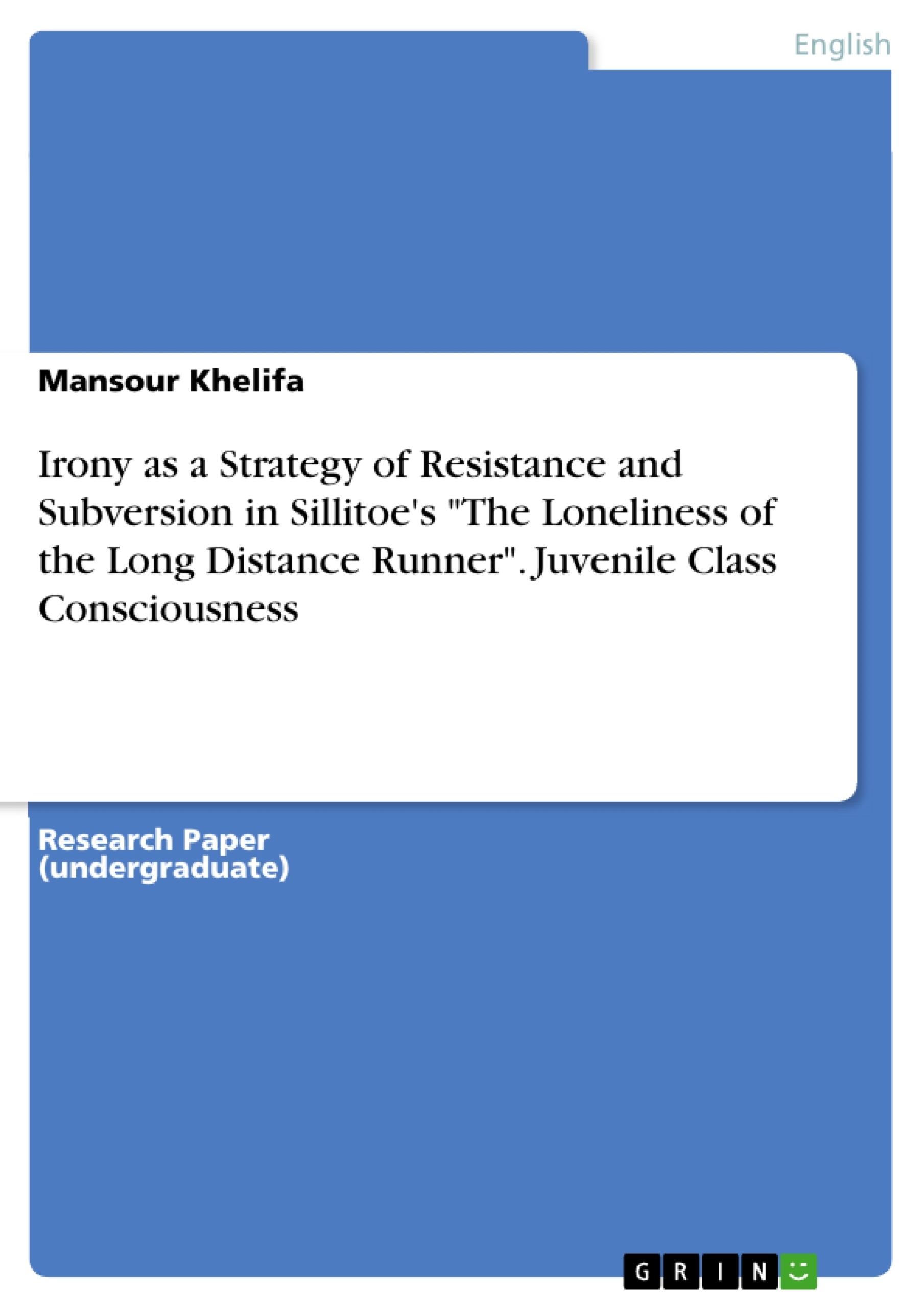Literature and irony are intimately associated with man’s predicament. Myth, epic, classical tragedy, "The Canterbury Tales", "Arabian Nights", "King Lear", Swift’s “Modest Proposal”, modern and post-modern literature such as Joyce’s "A Portrait of The Artist as a Young Man", Orwell’s "Animal Farm", Beckett’s "Waiting for Godot", all of these devote a substantial part to irony. Whether it is Socratic, dramatic, tragic, “cosmic”, Romantic, structural, or rhetorical, irony signifies a gap that needs filling. The importance of an ironical relation lies in the absence of harmony between the parties and the misunderstanding caused by it. Irony proceeds from “Dissymmetry”, “Negation”, “Denial”, “Cancellation”, “Concealment”, “Parody”, “Reversal”, “Interchangeability”, “Playfulness”, “Witticism”, “Understatement”, etc.
Commenting upon the superiority of “Metaphor”, Aristotle says that it takes a genius to “perceive similarity” between two distinct objects. Irony stems precisely from the reverse, i.e. the perception of dissimilarity, or from the deliberately perverting and obliterating denial of what is perceived as distinct. If the purpose of Metaphor is to assemble, that of Irony is to dissemble (in Greek comedy the eiron is a “dissembler”). In a sense, while Metaphor relates to metonymy, Irony is germane to oxymoron and paradox. Yet, the Aristotelian concept of “Peripeteia” (Irony of events or Reversal of Fortune), which determines the real fabric of a “complex” fable, seems to allow for circularity instead of dislocation: “It is the coming full circle of a wheel, which first carries a man up and then down...” (81).
Inhaltsverzeichnis (Table of Contents)
- Introductory
- The story line of “The Loneliness of the Long Distance Runner”
- Structure of the story
- Different kinds of Irony
- Irony based on special linguistic uses
- Irony based on reversal...
- Ironical reversal of power relations
- Subversive irony and intertextuality
- Conclusion.......
Zielsetzung und Themenschwerpunkte (Objectives and Key Themes)
This paper aims to explore the various functions of irony in Alan Sillitoe's novella “The Loneliness of the Long Distance Runner” and how they contribute to the story's narrative and thematic depth. It examines the different types of irony present, from linguistic to structural, and how they are used to subvert power dynamics and create a sense of resistance within the text.
- The use of irony as a strategy of resistance against authority figures.
- The exploration of class conflict and the societal implications of “haves” and “have-nots.”
- The analysis of the central character’s cunning and his deliberate choice to lose a race.
- The interplay of irony with intertextuality and the textual self-criticism within the narrative.
- The impact of irony on the narrative voice and its role in shaping the protagonist's perspective.
Zusammenfassung der Kapitel (Chapter Summaries)
The introductory chapter explores the pervasive nature of irony in literature and its diverse forms, from Socratic to structural. It contrasts irony with metaphor and highlights its dissembling nature. Chapter 2 delves into the story line of “The Loneliness of the Long Distance Runner,” introducing the protagonist Smith, a 17-year-old Borstal youth, and his decision to lose a race organized by the prison authorities, ultimately turning the tables on those in power. This chapter also outlines the paper's focus on analyzing different instances of irony within the story.
Chapter 3 examines the structural elements of the novella, outlining its two distinct phases: Smith’s current experience in Borstal and past events related to his arrest for a bakery robbery. It further categorizes the text into three sections based on the narrative’s key themes and events, including Smith’s training and cunning, the ransacking of a picnic, and his ultimate decision to lose the race. This structure provides a framework for exploring the multifaceted use of irony within the narrative.
Further chapters delve into specific examples of irony based on linguistic uses and structural reversals. The text highlights the strategic use of irony as a weapon of resistance, exploring its impact on the protagonist's relationship with authority figures and the power dynamics within the story. It also examines how irony contributes to the narrative's self-referentiality and its engagement with intertextuality.
Schlüsselwörter (Keywords)
The core keywords in this paper focus on the exploration of irony as a strategic tool for resistance and subversion. This includes terms such as irony, subversion, resistance, power dynamics, class conflict, narrative voice, intertextuality, and the character of Smith, the protagonist of "The Loneliness of the Long Distance Runner." The analysis also examines specific types of irony such as linguistic irony and structural irony.
Frequently Asked Questions
What is the central theme of "The Loneliness of the Long Distance Runner"?
The story by Alan Sillitoe focuses on Smith, a juvenile delinquent who uses a long-distance race as a platform for resistance and subversion against authority.
How is irony used as a strategy of resistance?
Irony is used to subvert power dynamics; for example, Smith deliberately loses the race to deny the Borstal governor a personal triumph, thus asserting his own agency.
What is "Juvenile Class Consciousness" in this context?
It refers to the protagonist's awareness of the divide between "haves" and "have-nots" and his refusal to conform to the rules of a society that marginalizes his class.
What types of irony are explored in the analysis?
The paper examines linguistic irony, structural irony (based on reversal of events), and subversive irony that challenges social hierarchies.
How does the structure of the story contribute to its meaning?
The narrative alternates between Smith's internal thoughts during the race and flashbacks to his past, highlighting the gap between his reality and the expectations of authority.
- Arbeit zitieren
- Mansour Khelifa (Autor:in), 2005, Irony as a Strategy of Resistance and Subversion in Sillitoe's "The Loneliness of the Long Distance Runner". Juvenile Class Consciousness, München, GRIN Verlag, https://www.grin.com/document/314255



